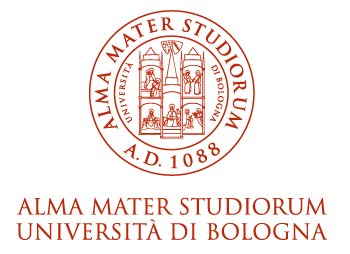Information on how to write your final paper, on your final grade on what to do on graduation day
At the end of their study path, students are admitted to their final exam, consisting in the public presentation of a project to the Graduation Board.
In order to be admitted to the graduation session, you must have earned the credits from all of the modules and learning activities except the “final exam” (that is, when you have earned and registered at least 177 credits). You can choose different graduation sessions, according to when you manage to finish your exams: July, September, October, or March. The earlier you graduate, the more bonus points you may be awarded (please refer to the specific information about graduation mark).
The final exam, leading to graduation, consists in the public presentation of a project of your choice (see the “Guidelines for drafting your final project”) to a specific board of teachers, the Graduation Board, who will ask you a few questions about it. On successful completion of the “final exam”, the same day you will be assigned your final mark and be awarded your degree.
The final examination consists in writing a short-lenght paper on a subject relevant to your studies, developed in an original way (with or without the guidance of a teacher) and to its public presentation to a Degree Board. Important:
Therefore, it cannot be denominated as such in your curriculum vitae or studiorum. Also, if you plan to be supported by an instructor to draft it, please remember they cannot be defined as "supervisor" (relatore).
Please refer to the documents in the attachment box "Guidelines for drafting your final paper" and "Cover page sample" for guidance on how to write your final project and for a sample of the layout.
The final paper will be discussed publicly during a specific final examination session in front of the Graduation Board. The Board may ask you in-depth questions on methods, results and any developments of your work. The Board will assess your overal academic records, the quality of your work and discussion of it in determining your final grade.
If you wish, you can use slides (such as PowerPoint) in support of your presentation, which typically lasts 7-10 minutes.
Your final project's title:
Within the body of the email please state:
- your full name (first and last name);
- your student number (matricola);
- your degree course (CLEF 8835);
- your graduation month and year;
- your final paper’s title.
The first page in the file you will send must be that in the attachment box (cover page sample).
While exam grades are on a 18-30 scale, the final grade is on a 66-110 scale. Such final grade is the result of the starting grade + the bonuses (see below). The starting grade is the mathematical average of all of your exam marks weighted on the corresponding credit point values, converted into a mark in the 66-110 scale. The file in the attachment may help you calculate your starting and final grade, however, this is not to be intended as an official tool: it is the Student Administration Office who can provide official and complete information.
A number of bonus points may be added to your starting grade, according to how your final paper and presentaion are evaluated, and your chosen graduation session.
Final paper and presentation:
0 to 3 points
Graduation session:
From the July 2025 session:
1st session (July): 4 points
2nd and 3rd (September and October): 3 points
4th (March): 2 points
Graduands and their guests are requested to respect the following rules of behaviour on graduation day:
Your guests may attend your graduation from a distance. To do so click on the button “Ospiti” available on the Studenti Online page related to your graduation procedure. You'll then receive an email with the credentials that should be used to log in to Teams and access the graduation virtual room. These credentials can be used by multiple people at the same time. Only after, share the Teams link included in the invitation.
Guidelines for drafting your final paper
[ .pdf 87Kb ]
Calculating your final grade (informally)
[ .xlsx 29Kb ]
COVER PAGE FORMAT (frontespizio)
[ .docx 79Kb ]
